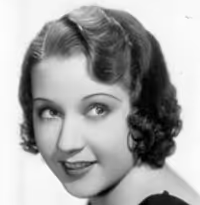RIP James Rado
A Director
Broadway Legend Joined: 12/18/07
#2RIP James Rado
Posted: 6/22/22 at 4:46pm
Just saw this on the Channel 4 evening news. I think a nice tribute would be a "love in" in Times Square and everyone singing "Aquarius/Let The Sunshine In".
MsPiety&Rectitude
Chorus Member Joined: 4/3/22
#3RIP James Rado
Posted: 6/24/22 at 2:06pm
There was a thorough obituary in the NYT with a lot of interesting information that I was not aware of - namely that he starred as Claude in Hair in his mid-late 30s, and that he and Gerome Ragni, his collaborator, were lovers:
“We were in a love mode,” he said, “and this whole love movement started happening around us, so the show got it. ‘Hair’ was our baby in a way, which is pretty cool.”
Here’s the article
Not mentioned in the article was a musical that I happened to see a reading of around 2012 called Super Soldier… it truly defies description, though I recall that the main soldier died, became a rainbeam, then became a ghost, and sought help from a banana who was a psychiatrist. No one can say that Mr. Rado didn’t write whatever he wanted to! Good for him, RIP.
#4RIP James Rado
Posted: 6/24/22 at 2:34pm
Frustrating to read "So much of the power of “Hair” resided in its seeming raw spontaneity, yet Mr. Rado (pronounced RAY-doe) labored over it for years with his collaborator Gerome Ragni to perfect that affect" when in fact it was radically re-written for Broadway with tons of dialogue and even one song not by them added (for which the actors received no credit nor compensation), and of course the show changed nightly due to various bits of improvisation.
Still, saddened by this. Was a huge Hair fan in my youth. I wrote to Rado and Ragni through their agent listed on the back of the cast album, Nat Shapiro. He'd actually died, and the man who took over his practice very kindly wrote me back (had no idea how to contact them). When a local theater staged a production in my junior year of high school, I attended the show every weekend of the run but one. Kept the flowers and programs from each performance for years.
Thanks for expanding my mind, Mr. Rado. Hope the Righteous Dude leads you down the happiest lanes of the Highway of the After Life.
#5RIP James Rado
Posted: 6/25/22 at 2:55pm
joevitus said: "Frustrating to read "So much of the power of “Hair” resided in its seeming raw spontaneity, yet Mr. Rado (pronounced RAY-doe) labored over it for years with his collaborator Gerome Ragni to perfect that affect" when in fact it was radically re-written for Broadway with tons of dialogue and even one song not by them added (for which the actors received no credit nor compensation), and of course the show changed nightly due to various bits of improvisation."
1. Ragni and Rado worked on the initial show from 1965-69 and then undertook an extended set of revisions which began in 1989 and continued (following Ragni's death in 1991) until Rado's death. Does that not count as laboring over it for years?
2. The sour grapes subsequently aired by Tribe members about the lack of credit for their contributions, while understandable from these people who even now exhibit an extraordinary sense of ownership when it comes to the show (bordering on gatekeeper), was covered by the equivalent of the Faith Dane clause. It was understood to be a workshop-like environment where ideas would be tried and ceased to belong to them. Stuff was tried out to see if a "bit" would work, but the actual writing was done by the boys. Indeed, ironically enough, many original cast members' primary complaint today is that a lot of their improv is no longer in the script, which often tempts me to respond, "When you start asking for attribution, what do you expect?"
(And that's saying nothing of the fact that some of their grasping for credit borders on revisionism. Lorrie Davis in particular famously claims to have made up "Abie, Baby" all by herself in rehearsal; while she may indeed have come up with some of the jive talk between the actual Lincoln speech, the final product was written by Ragni and Rado based on the rehearsal development, not a transcription of the rehearsal development itself, and at any rate, as the early script published in paperback shows, everything else in the song/scene was there except the Gettysburg Address. It would be like claiming Ronnie Dyson deserves credit for "What a Piece of Work Is Man" because he showed up to auditions with a white accompanist and Tom O'Horgan liked the image and wanted to add something like it to the show.)
Broadway Legend
joined: 5/1/05
Blocked: After Eight, suestorm, david_fick, emlodik, lovebwy, Dave28282, joevitus, BorisTomashevsky, Seb28
#6RIP James Rado
Posted: 6/25/22 at 5:12pm
RIP James Rado - the last of the show's collaborators to leave us.
I've read so many conflicting accounts on how this particular show came to be that it would make anyone's head spin. At this point you don't know who is telling or what the truth is. And because of the show's mammoth success many want to lay claim to some part of it. I've even read an account that Rado and Ragni were not at all part of the countercultural scene of that time and that it was because of their association with NYC's theater and arts scene that they were exposed to it through their much younger acquaintances, became fascinated with "the scene" and saw potential of profiting from it.
Rado was 35 and Ragni 32 at the time. I believe Ragni was married to his longtime girlfriend and had a son before meeting Rado and taking up with him. In reality they were "over the hill" at that time to be seriously considered part of the movement they successfully infiltrated, exploited and became rich off of.
#7RIP James Rado
Posted: 6/25/22 at 5:22pm
Which makes me ask: is the Margaret Mead scene a self-satire of this queer couple almost a generation removed infiltrating the hippie experience?
#8RIP James Rado
Posted: 6/25/22 at 5:46pm
g.d.e.l.g.i. said: "joevitus said: "Frustrating to read "So much of the power of “Hair” resided in its seeming raw spontaneity, yet Mr. Rado (pronounced RAY-doe) labored over it for years with his collaborator Gerome Ragni to perfect that affect" when in fact it was radically re-written for Broadway with tons of dialogue and even one song not by them added (for which the actors received no credit nor compensation), and of course the show changed nightly due to various bits of improvisation."
1. Ragni and Rado worked on the initial show from 1965-69 and then undertook an extended set of revisions which began in 1989 and continued (following Ragni's death in 1991) until Rado's death. Does that not count as laboring over it for years?
2. The sour grapes subsequently aired by Tribe members about the lack of credit for their contributions, while understandable from these people who even now exhibit an extraordinary sense of ownership when it comes to the show (bordering on gatekeeper), was covered by the equivalent of the Faith Dane clause. It was understood to be a workshop-like environment where ideas would be tried and ceased to belong to them.Stuff was tried out to see if a "bit" would work, but the actual writing was done by the boys. Indeed, ironically enough, many original cast members' primary complaint today is that a lot of their improv is no longer in the script, which often tempts me to respond, "When you start asking for attribution, what do you expect?"
(And that's saying nothing of the fact that some of their grasping for credit borders on revisionism. Lorrie Davis in particular famously claims to have made up "Abie, Baby" all by herself in rehearsal; while she may indeed have come up with some of the jive talk between the actual Lincoln speech, the final product was written by Ragni and Rado based on the rehearsal development, not a transcription of the rehearsal development itself, and at any rate, as the early script published in paperback shows, everything else in the song/scene was there except the Gettysburg Address. It would be like claiming Ronnie Dyson deserves credit for "What a Piece of Work Is Man" because he showed up to auditions with a white accompanist and Tom O'Horgan liked the image and wanted to add something like it to the show.)"
1. Only on the most technical, legalistic level.
2. That doesn't alter that in fact the cast did participate to a large extent in the formation of the script for the Broadway incarnation, rather credited or not. Which was my point.
#9RIP James Rado
Posted: 6/25/22 at 5:57pm
CarlosAlberto said: "RIP James Rado - the last of the show's collaborators to leave us.
I've read so many conflicting accounts on how this particular show came to be that it would make anyone's head spin. At this point you don't know who is telling or what the truth is. And because of the show's mammoth success many want to lay claim to some part of it. I've even read an account that Rado and Ragni were not at all part of the countercultural scene of that time and that it was because of their association with NYC's theater and arts scene that they were exposed to it through their much younger acquaintances, became fascinated with "the scene" and saw potential of profiting from it.
Rado was 35 and Ragni 32 at the time. I believe Ragni was married to his longtime girlfriend and had a son before meeting Rado and taking up with him. In reality they were "over the hill" at that time to be seriously considered part of the movement they successfully infiltrated, exploited and became rich off of.
"
Would you cast such aspersions on any other creator? Would you say "How dare Stephen Sondheim, a gay man, write Company, a show about heterosexual marriage!" Would you castigate Jerry Herman for getting rich off Hello, Dolly! "when he'd never been a turn-of-the-century matchmaker in his life!" Were they "exploiting" anything? Or do artists observe, utilize, comment?
Yes, Rado and Ragni were older (not sure how having a wife and child means anything about one's commitment to a political view--I'd say leaving both to be with a gay lover indicates a very specific kind of admirable commitment). I doubt they were faking it, but what with all the egotism and posturing around "authenticity" that counterculture encouraged, I'm not surprise any number of people who were also part of the counterculture movement claimed they were phonies. Who cares?
They initiated a project and created the lyrics for a show which spoke to millions, the world over. And the sort of shows they did afterward unquestionably show a commitment to the vision of Hair--flop after flop, they never just chucked their ideals for a more traditional style of show or to express more traditional values. Sounds like commitment to me.
#10RIP James Rado
Posted: 6/25/22 at 6:56pm
joevitus said: "CarlosAlberto said: "RIP James Rado - the last of the show's collaborators to leave us.
I've read so many conflicting accounts on how this particular show came to be that it would make anyone's head spin. At this point you don't know who is telling or what the truth is. And because of the show's mammoth success many want to lay claim to some part of it. I've even read an account that Rado and Ragni were not at all part of the countercultural scene of that time and that it was because of their association with NYC's theater and arts scene that they were exposed to it through their much younger acquaintances, became fascinated with "the scene" and saw potential of profiting from it.
Rado was 35 and Ragni 32 at the time. I believe Ragni was married to his longtime girlfriend and had a son before meeting Rado and taking up with him. In reality they were "over the hill" at that time to be seriously considered part of the movement they successfully infiltrated, exploited and became rich off of.
"
Would you cast such aspersions on any other creator? Would you say "How dare Stephen Sondheim, a gay man, write Company, a show about heterosexual marriage!" Would you castigate Jerry Herman for getting rich off Hello, Dolly! "when he'd never been a turn-of-the-century matchmaker in his life!" Were they "exploiting" anything? Or do artists observe, utilize, comment?
Yes, Rado and Ragni were older (not sure how having a wife and child means anything about one's commitment to a political view--I'd say leaving both to be with a gay lover indicates a very specific kind of admirable commitment). I doubt they were faking it, but what with all the egotism and posturing around "authenticity" that counterculture encouraged, I'm not surprise any number of people who were also part of the counterculture movement claimed they were phonies. Who cares?
They initiated a project and created the lyrics for a show which spoke to millions, the world over. And the sort of shows they did afterward unquestionably show a commitment to the vision of Hair--flop after flop, they never just chucked their ideals for a more traditional style of show or to express more traditional values. Sounds like commitment to me."
joevitus calm down. Those are not my personal opinions but of those who wrote the piece I read in regard to the creation of the show.
I personally don't give 2 flying fvcks...you just wasted your time writing 3 paragraphs of word salad...sucks to be you...
#11RIP James Rado
Posted: 6/27/22 at 3:53pm
CarlosAlberto said: "joevitus said: "CarlosAlberto said: "RIP James Rado - the last of the show's collaborators to leave us.
I've read so many conflicting accounts on how this particular show came to be that it would make anyone's head spin. At this point you don't know who is telling or what the truth is. And because of the show's mammoth success many want to lay claim to some part of it. I've even read an account that Rado and Ragni were not at all part of the countercultural scene of that time and that it was because of their association with NYC's theater and arts scene that they were exposed to it through their much younger acquaintances, became fascinated with "the scene" and saw potential of profiting from it.
Rado was 35 and Ragni 32 at the time. I believe Ragni was married to his longtime girlfriend and had a son before meeting Rado and taking up with him. In reality they were "over the hill" at that time to be seriously considered part of the movement they successfully infiltrated, exploited and became rich off of.
"
Would you cast such aspersions on any other creator? Would you say "How dare Stephen Sondheim, a gay man, write Company, a show about heterosexual marriage!" Would you castigate Jerry Herman for getting rich off Hello, Dolly! "when he'd never been a turn-of-the-century matchmaker in his life!" Were they "exploiting" anything? Or do artists observe, utilize, comment?
Yes, Rado and Ragni were older (not sure how having a wife and child means anything about one's commitment to a political view--I'd say leaving both to be with a gay lover indicates a very specific kind of admirable commitment). I doubt they were faking it, but what with all the egotism and posturing around "authenticity" that counterculture encouraged, I'm not surprise any number of people who were also part of the counterculture movement claimed they were phonies. Who cares?
They initiated a project and created the lyrics for a show which spoke to millions, the world over. And the sort of shows they did afterward unquestionably show a commitment to the vision of Hair--flop after flop, they never just chucked their ideals for a more traditional style of show or to express more traditional values. Sounds like commitment to me."
joevitus calm down. Those are not my personal opinions but of those who wrote the piece I read in regard to the creation of the show.
I personally don't give 2 flying fvcks...you just wasted your time writing 3 paragraphs of word salad...sucks to be you...
"
Didn't waste my time at all.
Videos






